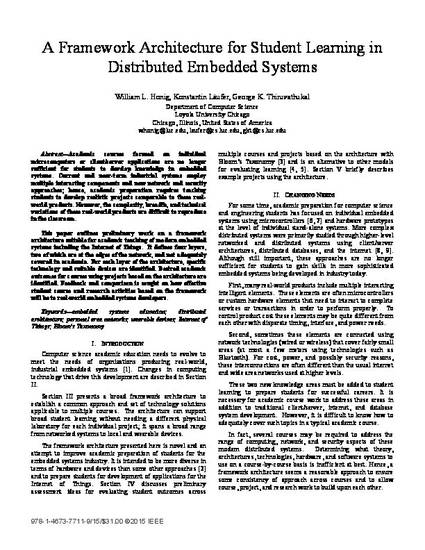
Academic courses focused on individual microcomputers or client/server applications are no longer sufficient for students to develop knowledge in embedded systems. Current and near-term industrial systems employ multiple interacting components and new network and security approaches; hence, academic preparation requires teaching students to develop realistic projects comparable to these real-world products. However, the complexity, breadth, and technical variations of these real-world products are difficult to reproduce in the classroom. This paper outlines preliminary work on a framework architecture suitable for academic teaching of modern embedded systems including the Internet of Things. It defines four layers, two of which are at the edges of the network, and not adequately covered in academia. For each layer of the architecture, specific technology and suitable devices are identified. Desired academic outcomes for courses using projects based on the architecture are identified. Feedback and comparison is sought on how effective student course and research activities based on the framework will be to real-world embedded systems developers.
